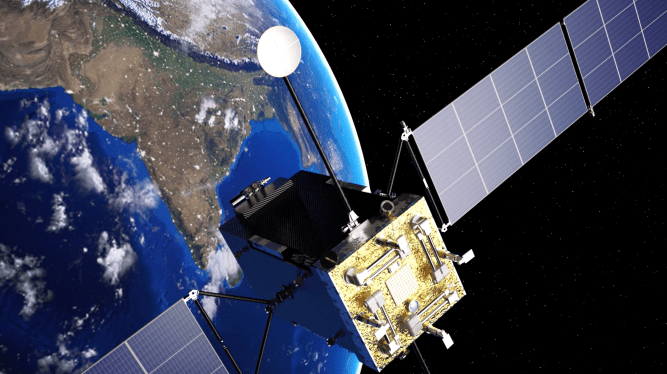Introduction
Kurs Orbital, a Ukrainian startup founded by space industry veterans, has secured a new tranche of funding to commercialize its satellite servicing technology. The company’s innovative approach aims to unlock new capabilities in space, including satellite relocation and inspection, de-orbiting, and space debris removal.
A New Era for Space Activities
The current landscape of space activities is characterized by high costs and limited capabilities. Kurs Orbital seeks to address these challenges by providing a standardized technology that can handle various scenarios. The company’s CEO, Volodymyr Usov, explained the significance of their approach:
"Currently, there are no off-the-shelf rendezvous and docking technologies available, so any company that wants to offer satellite servicing or logistics missions has to develop this technology on its own. This would take years, many missions, people, and money to achieve. By contrast, our module allows such companies to enter the market much faster and with a modest expense."
The ARCap Module
Kurs Orbital’s technology is built upon the flight heritage of the Kurs rendezvous system, a Soviet-era technology that enabled spacecraft to dock with the Mir space station. However, unlike other firms developing in-space servicing tech, the company’s module will be able to attach to "non-cooperative" targets, or target spacecraft that aren’t fitted with any hardware in advance.
"Our module does not require any hardware to be pre-installed on the customer spacecraft, as it can handle any kind of non-cooperative targets, such as fuel-depleted or faulty satellites or space debris," Usov said. "We aim to provide the market with a system that is truly performant and flexible, that allows the servicing spacecraft to be fully autonomous, both in space operations and from ground control."
Accelerating Plans
To accelerate its plans, Kurs Orbital has closed a €3.7 million seed round led by European deep tech VC firm OTB Ventures. The funding will enable the company to expand its 11-person team and bring the first ARCap module to space in the fourth quarter of 2025.
Market Potential
On-orbit servicing has gained attention in recent months, following the failure of high-cost satellite missions such as ViaSat’s ViaSat-3 geostationary satellite. De-orbiting services could also prove profitable for operators seeking to maximize their spacecraft’s lifespan.
"In the early 90s, no one would have imagined using the internet for products like social media and streaming services," Usov said. "Similarly, we know that our module can enable life extensions, decommissionings, inspections, active debris removals, refuelings, and more. But we also anticipate that new use cases for our technology will emerge in 10 years."
Conclusion
Kurs Orbital’s innovative approach to satellite servicing has the potential to transform the space industry. With a standardized technology that can handle various scenarios, the company is well-positioned to address the challenges of high costs and limited capabilities. As the market continues to evolve, Kurs Orbital’s ARCap module could become an essential tool for companies seeking to optimize their spacecraft’s performance.
Related News
- Reusable rocket startup Stoke raised another massive round: $260M
- Governments call for spyware regulations in UN Security Council meeting
